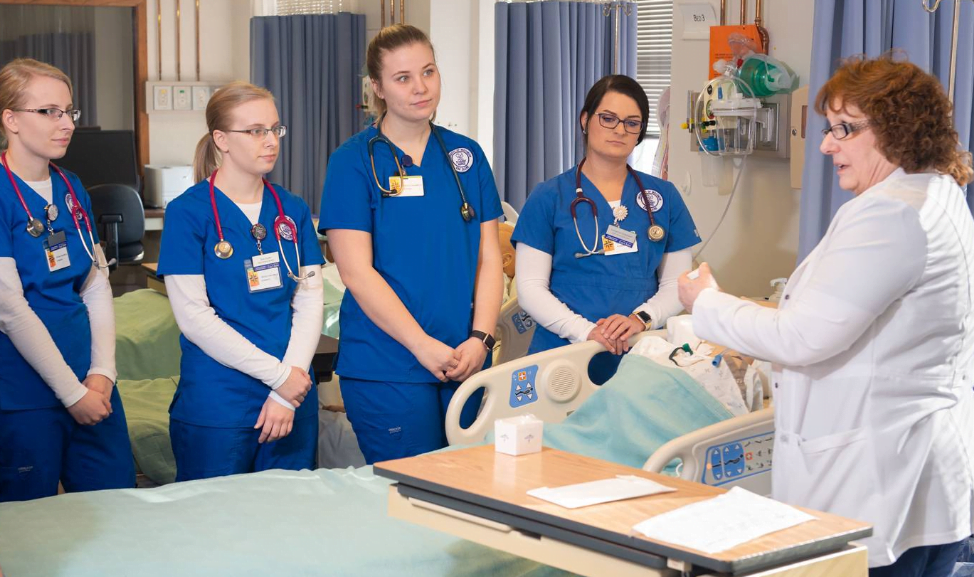The path to becoming a nurse is a journey marked by dedication, compassion, and an unwavering commitment to patient care. However, many aspiring nurses often wonder, “How long is nursing school?” In this exclusive article, we will provide a comprehensive overview of the educational journey that aspiring nurses undertake, outlining the various routes to becoming a nurse and the timeframes involved.
Table of Contents
how long is nursing school
Nursing school can take anywhere from 16 months to four years to complete, depending on the type of program you choose.
The two most common pathways to becoming a registered nurse (RN) are:
- Associate’s degree in nursing (ADN): This two-year program is offered at community colleges and some technical schools. ADN graduates are eligible to take the National Council Licensure Examination for Registered Nurses (NCLEX-RN) to become licensed RNs.
- Bachelor of science in nursing (BSN): This four-year program is offered at four-year colleges and universities. BSN graduates are also eligible to take the NCLEX-RN to become licensed RNs.
In addition to these two pathways, there are also accelerated nursing programs available for students who already have a bachelor’s degree in another field. These programs can be completed in as little as 12-18 months.
Once you have completed an accredited nursing program and passed the NCLEX-RN, you will be licensed as an RN and able to practice nursing in any state in the United States.
Here is a table summarizing the different types of nursing programs and their lengths:
| Program | Length |
|---|---|
| Associate’s degree in nursing (ADN) | 2 years |
| Bachelor of science in nursing (BSN) | 4 years |
| Accelerated BSN program | 12-18 months |
Depending on the specific nursing program that you enroll in, it could take anywhere from 16 months to four years to become a registered nurse. “I chose to earn my BSN, which takes four years,” says ChiChi Akanegbu, who completed her Bachelor of Science in Nursing at Regis College as a part of the Class of 2020.
It is important to note that the length of nursing school can also vary depending on your individual circumstances. For example, if you are working full-time while attending school, it may take you longer to complete your degree. Additionally, some nursing programs may have prerequisites that require you to take additional coursework before you can start the nursing program itself.
If you are interested in becoming a nurse, I recommend that you do some research to learn more about the different types of nursing programs available and the requirements for each program. You can also talk to a nursing school advisor to get personalized guidance on the best path for you.
Different Paths to Nursing

Nursing education offers several pathways, each with its own duration and academic requirements. The three most common routes are:
Licensed Practical Nurse (LPN) or Licensed Vocational Nurse (LVN):
- Duration: Approximately 12 to 18 months.
LPN/LVN programs are the quickest path to entry-level nursing. They typically require one year of education and clinical training. Graduates are eligible to take the NCLEX-PN (National Council Licensure Examination for Practical Nurses) and work under the supervision of registered nurses (RNs) and physicians.
Associate Degree in Nursing (ADN):
- Duration: Approximately 2 to 3 years.
ADN programs are offered by many community colleges and take around two to three years to complete. Graduates are eligible to take the NCLEX-RN (National Council Licensure Examination for Registered Nurses) and work as registered nurses.
Bachelor of Science in Nursing (BSN):
- Duration: Approximately 4 years.
BSN programs typically require four years of study at a college or university. Graduates are eligible to take the NCLEX-RN and often have more extensive training in areas such as leadership, research, and community health.
Factors Influencing Duration:
The time it takes to complete nursing school can be influenced by several factors:
- Full-Time vs. Part-Time: Some students opt for part-time study to balance their education with work or family commitments, which can extend the duration of their program.
- Prerequisite Courses: Depending on the program, students may need to complete prerequisite courses, such as anatomy and physiology, before starting the formal nursing curriculum.
- Accelerated Programs: Some institutions offer accelerated BSN programs for individuals with non-nursing bachelor’s degrees, which can shorten the overall duration of their nursing education.
Continuing Education:
Nursing is a dynamic field that encourages ongoing learning and professional development. Many nurses pursue additional certifications and advanced degrees, such as Master of Science in Nursing (MSN) or Doctor of Nursing Practice (DNP), which can add several years of education beyond initial licensure.
Conclusion, In conclusion, the duration of nursing school varies depending on the educational pathway chosen and individual circumstances. Whether you embark on the journey to become a licensed practical nurse, registered nurse, or a nurse with a bachelor’s degree, each path plays a crucial role in the healthcare system. Nursing is a rewarding and noble profession, and the time spent in nursing school is an investment in the well-being of patients and communities. Regardless of the route you choose, the commitment to lifelong learning and patient care remains at the core of nursing practice.


You may like it
lifeline assistance program free phone for Low-Income Consumers in 2024
Free Stuff With Food Stamps in 2024: Enhancing Accessibility and Well-Being
is precalculus hard? (Facts) Answered
Free Tablet And Phone With EBT Or Food Stamps: How to Get It In 2024
What is In School Suspension: Understanding the Purpose and Impact
Free iPads for College Students: How To Get A Free iPad For Low-Income Families 2024